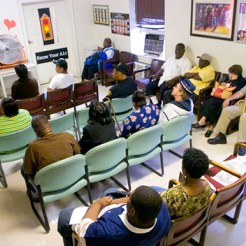Nazi Anything
Sometimes writing takes a back seat, as it should, to reality.
We spend a lot of time, in this Trumpian, Facebookish era, endlessly macerating previous texts, quotes, and media. It’s easier, it’s true, to quote others than to write one’s own clever words. Of course, some folks’ clever words will stand for ages:
People shouldn’t be afraid of their government. Governments should be afraid of their people. (Alan Moore, from “V for Vendetta”
Writing is hard. Quoting is easier.
Memes are easier remembered than created. And easier appropriated than created. And memes, by the nature of their being, are slippery viruses that get to all kinds of places you might not consider.
This is difficult. It’s difficult because I’m a child of Holocaust survivors. My mom from Auschwitz, my dad from a nameless slate of forced labor camps. My aunt, one of Mengele’s survivors, was the only close relative to make it through those years. My grandfather, who survived by the grace of a Polish, Catholic farm family by being hid in their attic (his Polish neighbors burnt down his farm after my grandfather testified at their denazification trials).
I’ve faced Nazis (and forebore from killing them, what with this being a democracy and all.) America, after keeping Jews in the line of fire and bringing Nazis back to America after the war to aid in their rocket research, has been fairly good to my people. It gave my parents a home, and a home and opportunity to many of my kind, including the mafioso, the Nobel Prize winners, and the awesome, awesome, everyday people.
Mr. Seinfeld brought humor to American television, in a vapid, aimless way. While I ever found his show funny, he is a pretty good standup comic, and I wish him no ill.
The “Soup Nazi,” however, was definitely not a bright spot in his writing resume for that show. His parents were foreign-American: his dad fought in World War II, and his mom was Syrian-Jewish-American. And he spent time in the early 90s in Israel on a kibbutz. He had to know about the sensitive, “it’s still too soon” aspect of calling people Nazis under any reasonable circumstances.
But his dad was a US soldier. And US soldiers had no problem talking about krauts, spicks, japs, chinks, and gooks. It’s the nature of soldiers and their governments to demote their enemy to non-humans. I know: I’ve been a soldier.
So, the “Soup Nazi” was written, first to paper, then to episodic television, and eventually, became a meme. It was funny, ugly, and therefore quickly absorbed into what passes for the American etymological memory.
We were having a good meeting, this manager and I. He is a sweet, kind, honest, funny, straightforward married dad of a young child. He chuckles, a grownup version of a giggle, and he reminds me of myself, in the 1990s, at an IBM subsidiary, trying to empower and feel for my employees. My contractors. My peers. The world around me.
“I want you to be the documentation Nazi, if you—” he said, as we discussed process in his nascent group.
“Don’t ever say that again,” I said. “My parents were in the Holocaust. My father was in labor camps. Today is Holocaust Memorial Day.”
I’m very bad at reading faces, and expressions. I think he was shocked and taken aback (who wouldn’t) at my statement. I _do_ know that, from the tone of his voice, he was surprised at my reaction. And genuinely, honestly, deeply, sorry.
So was I. In some way, I was surprised I didn’t lose it. He said this on the Holocaust Memorial Day. He said this hours after I’d listed, carefully, clinically, the names and dates of all my my immediate family who died in the Holocaust. And how they were people, not numbers. Not even the number carved into my mother’s skin, until, after the war, she seared it from her flesh. 72197.
I can’t help me; I’m the creation distillation, and essence of what my parents, their actions, their family, my actions, and my family, have created. And I can’t help him, not that he needs it, a happy, funny, forward-looking person who wants the best for those around him.
But I can cry, without stop, at the surprising pain of this jab, silly, memetic and trivial though it may be.
And, after breathing, a viewing of “V for Vendetta,” and a possibly unhealthy dollop of wine, I realize that the Nazis really are dead. They’re not making soup, or making fun of it. They’re not standing in front of gun show, advertising their fear. They’re not doing anything. Their power is a function of their reach. And their reach, delusions of the fascist right aside, is the length of their small arms and even tinier hands.
 My current WIP has a cast of characters, a bunch of whom are all first seen by my POV character in a room together. My first draft of this was, upon re-reading, a flood of details that made the narrative not only drag, but flounder.
My current WIP has a cast of characters, a bunch of whom are all first seen by my POV character in a room together. My first draft of this was, upon re-reading, a flood of details that made the narrative not only drag, but flounder.